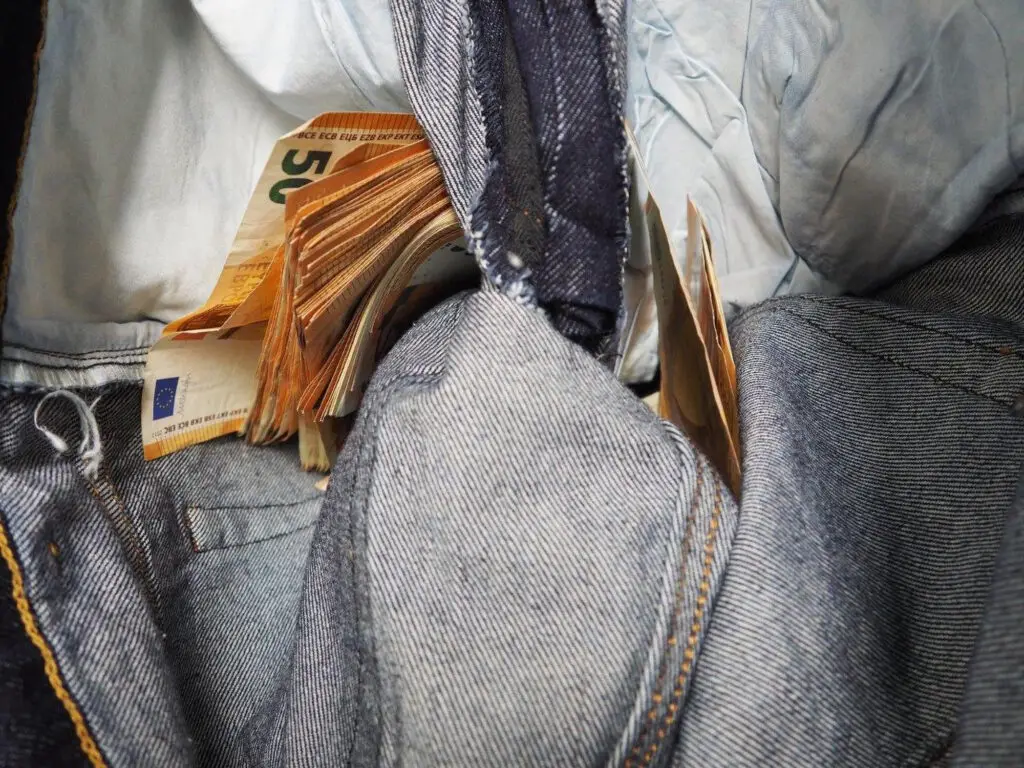A woman who tried to traffick more than GBP 120,000 in banknotes stuffed inside pairs of men’s jeans has lost all the cash to customs officials.

The cash stash was discovered in the denims during a luggage search at Germany’s Frankfurt Airport in 2020.
Now judges at Frankfurt District Court have ruled that the 40-year-old woman cannot have the money back because it came from “illegal transactions”.
Under local law, a court only has to believe that a money laundering suspect is guilty to be allowed to confiscate any profits.
Customs spokesperson Carina Orth said in a statement obtained by Newsflash: “In response to repeated inquiries from the customs officers, the woman stated that she was not carrying any significant amount of cash.
“During the course of the customs check, however, a total of EUR 140,000 [GBP 120,000] – wrapped in several men’s jeans – were found in the traveller’s luggage.
“Furthermore, the woman did not provide any information about the origin and purpose of the seized cash.”

Following the find, police immediately opened an investigation into money laundering against the woman.
A final judgement to confiscate the funds for good was announced by the Frankfurt am Main Customs Investigation Office and the Hessian State Criminal Police Office on 15th August.
Orth explained: “This means that the funds seized on suspicion of money laundering can also be confiscated if the person accused in the criminal proceedings could not be prosecuted or convicted, provided the court is convinced that these funds originate from a criminal offence.
“The confiscation of crime proceeds, i.e. the taking of profits from possible crimes, follows the principle that ‘criminal crimes should not be worthwhile for possible perpetrators’.”



